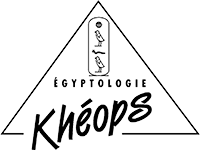KÔM EL-KHILGAN
Predynastic cemetery in the Nile Delta
■ Fieldwork dates
2002-2005
■ Project director
Béatrix MIDANT-REYNES (CNRS)
■ Participants
François BRIOIS | Nathalie BUCHEZ | Johanna DĘBOWSKA | Morgan DE DAPPER | Sylvie DUCHESNE | Salem el-BOGHDADI | Rachid EL-HAJAOUI | Bruno FABRY | Dominique GEMEHL | Christiane HOCHSTRASSER-PETIT | Mohamed IBRAHIM MOHAMED | Benoît KIRSCHENBILDER | Nicolas LACOSTE | Alain LECLER | Agnieszka MĄCZYŃSKA | Abeid MAHMOUD ABEID | David SÈVE | Luc STANIASZEK | Évelyne TISSIER | Yann TRISTANT
■ Institutions
- Institut français d’archéologie orientale (Le Caire)
- Centre d’Anthropologie, UMR 8555, CNRS, EHESS, Université Paul Sabatier (Toulouse)
- Ministère des affaires étrangères
- Région Midi-Pyrénées
■ Presentation
Kom el-Khilgan is located less than one kilometre away from the village of Samara, in the province of Daqahliyya (eastern Delta), 40 km south-west of the town of Mansura. Identified by the Egyptian Antiquity Service in the 1980s, the site was also mentioned during the surveys led by E. van den Brink in the area in the 1960s.
It is a cultivated field of 8600 m2 (altitude 4.25m), around 1 m above the surrounding fields. Its original altitude was evaluated thanks to the presence of a small residual mound located 35 m to the west, of 290 m2 and culminating at 5.46 m above sea level, that by superstition farmers had left intact until recently. This is why we gave it the name of “cursed mound”.
The threat of total destruction of the site due to the development of agricultural land led us to work at the site in 2002. Four field seasons were conducted at the site between 2002 and 2005, followed by a campaign to study the material in 2006. Béatrix Midant-Reynes directed the project, on behalf of IFAO, with the financial support of the French Ministry of Foreign Affairs and of the French Region Midi-Pyrénées.
The geomorphological study of the gezira of Kom el-Khilgan was conducted by Morgan De Dapper and Yann Tristant, the latter developed the study in the frame of his PhD thesis which was recently published in 2020 (see publications).
Two main occupation periods are present, which can further be subdivided into six phases, from the beginning of the 4th millennium BCE until the New Kingdom. The Second Intermediate Period, with an important Hyksos occupation, documents mostly the Pharaonic period.
The first occupation phase of the tell is represented by the vast Predynastic cemetery, the interest of which is to group together burials belonging to two large cultural groups, who have dominated Egypt during the first half of the 4th millennium BCE: the group of the Cultures of Lower Egypt (CLE, previously “Maadi-Bouto”) and the Naqada group, specifically the phases Naqada IIIA-C. This gives this Delta cemetery an unquestionable originality and places its study at the centre of research oriented towards the understanding of the processes of cultural unification, which took place in the middle of the 4th millennium BCE (see article Midant-Reynes & Buchez 2019).
In total, 239 tombs were excavated. Their study and complete inventory constitute a monograph, currently in press at IFAO, co-edited by Béatrix Midant-Reynes and Nathalie Buchez. The book is composed of the full inventory of 239 tombs, described by the physical anthropologists who excavated them (Luc Staniaszek and Sylvie Duchesne), and an overview that proposes, in conclusion, to reconsider the nowadays highly debated phenomenon of the ‘Naqada expansion’.
■ Principales publications
Buchez, N. & Midant-Reynes, B., Le site prédynastique de Kôm el-Khilgan (Delta oriental). Données nouvelles sur les processus d’unification culturelle au IVe millénaire, Bulletin de l’Institut français d’archéologie orientale 107 (2007) : 43-70. [insérer un lien vers https://www.ifao.egnet.net/bifao/107/03]
Buchez, N. & Midant-Reynes, B., A tale of two funerary traditions: The Predynastic cemetery at Kom el-Khilgan (eastern Delta) », in Friedman, R.F. & Fiske, P.N. (eds.), Egypt at its Origins 3. Proceedings of the Third International Conference “Origin of the State. Predynastic and Early Dynastic Egypt”, London, 27th July-1sr August 2008, Orientalia Lovaniensia Analecta 205, Leuven, Paris, Walpole, MA, 2011: 831-858.
Midant-Reynes, B. & Buchez, N. (dir.), Kom el-Khilgan. La nécropole prédynastique, Fouilles de l’Institut français d’archéologie orientale, Le Caire, sous presse (prévue en 2021).
Tristant, Y.; De Dapper, M. & Midant-Reynes, B., Human occupation of the Nile Delta during Pre-and Early Dynastic times. A view from Kom el-Khilgan, in Midant-Reynes, B. & Tristant, Y. (eds.), Egypt at its Origins 2. Proceedings of the International Conference “Origin of the State. Predynastic and Early Dynastic Egypt”, Toulouse (France), 5th-8th September 2005, Orientalia Lovaniensia Analecta 172, Leuven, Paris, Dudley, MA, 2008: 427-441.
Tristant, Y., L’occupation humaine dans le Delta du Nil aux Ve et IVe millénaires. Approche géoarchéologique à partir de la région de Samara (delta oriental), Bibliothèque d’étude 174, Le Caire (337 p.).
■ Articles published in Archéo-Nil
Archéo-Nil 30 (2020)
Midant-Reynes Béatrix & Tristant Yann
La violence à l’époque prédynastique
37-56
Archéo-Nil 29 (2019)
Midant-Reynes Béatrix & Buchez Nathalie
Naqadian expansion: a review of the question based on the Necropolis of Kom el-Khilgan
128-156
Archéo-Nil 13 (2003)
Midant-Reynes Béatrix, Briois François, Buchez Nathalie, Crubézy Éric, De Dapper Morgan, Duchesne Sylvie, Fabry Bruno, Hochstrasser-Petit Christiane, Staniaszek Luc & Tristant Yann
Kôm el-Khilgan : un nouveau site prédynastique dans le delta
55-64
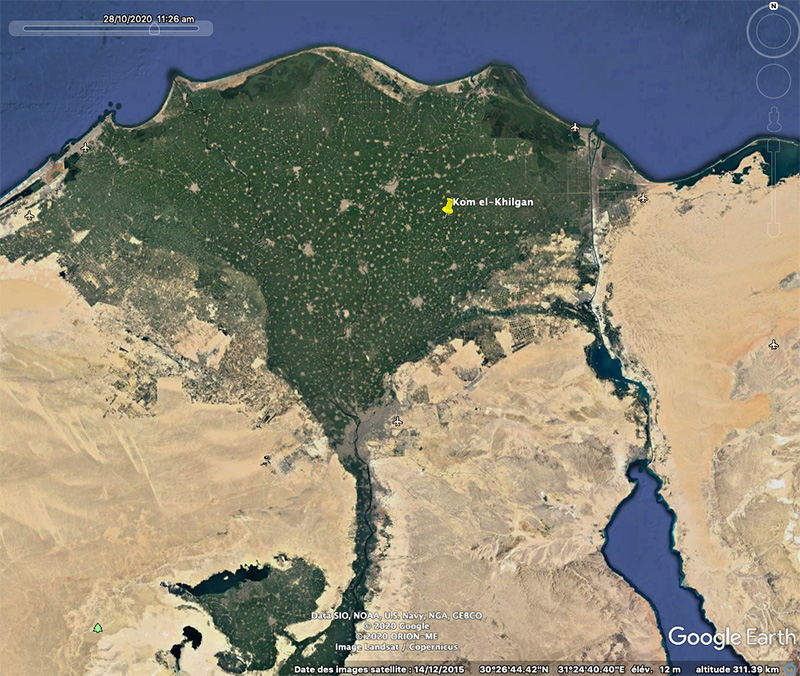
Location of Kom el-Khilgan in the eastern Delta
(Image Google Earth)
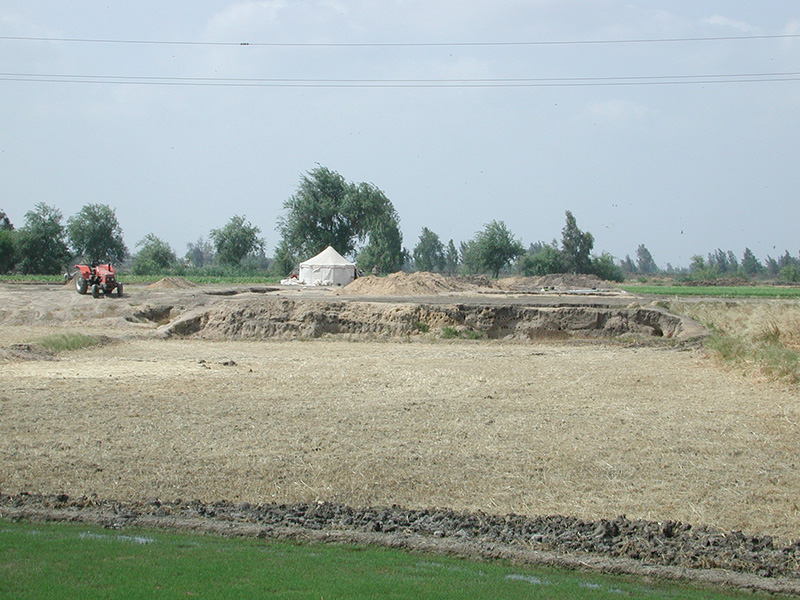
The tell above neighbouring fields
(Photo B. Midant-Reynes)
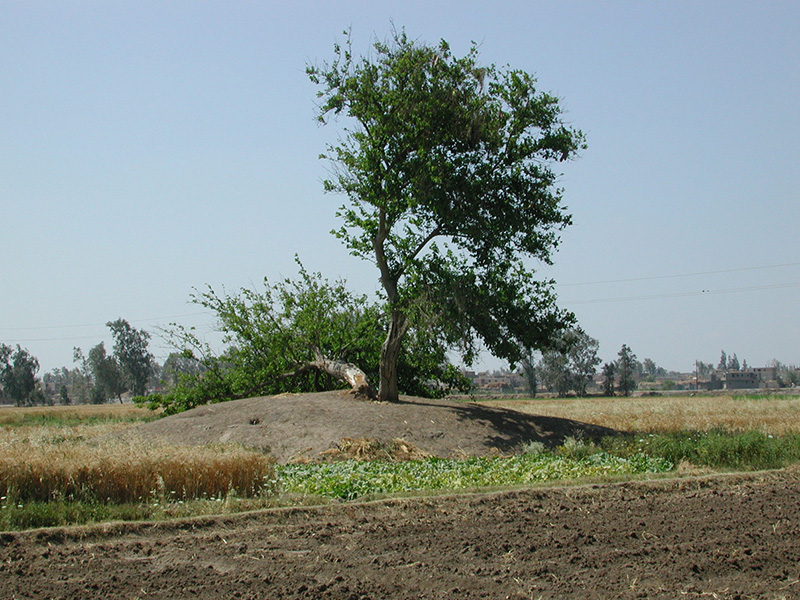
The cursed mound
(Photo B. Midant-Reynes)
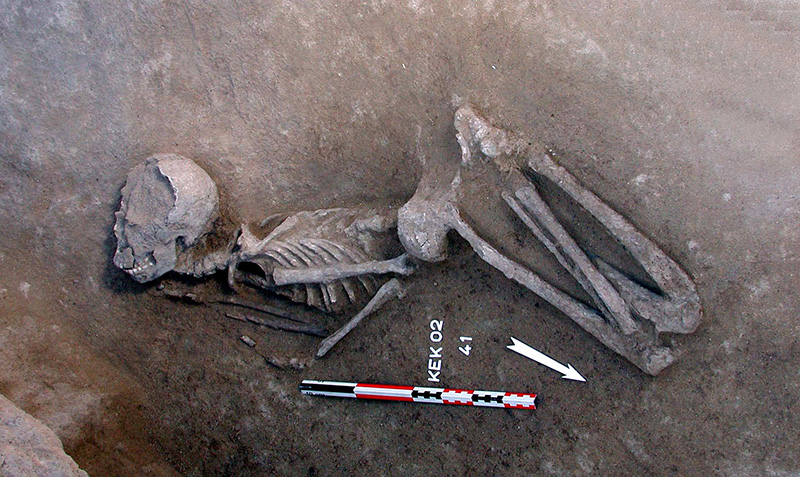
The « tortured victim » of S41 (Photo B. Midant-Reynes)
See Midant-Reynes Béatrix & Tristant Yann, La violence à l’époque prédynastique, Archéo-Nil 30 (2020) : 37-56
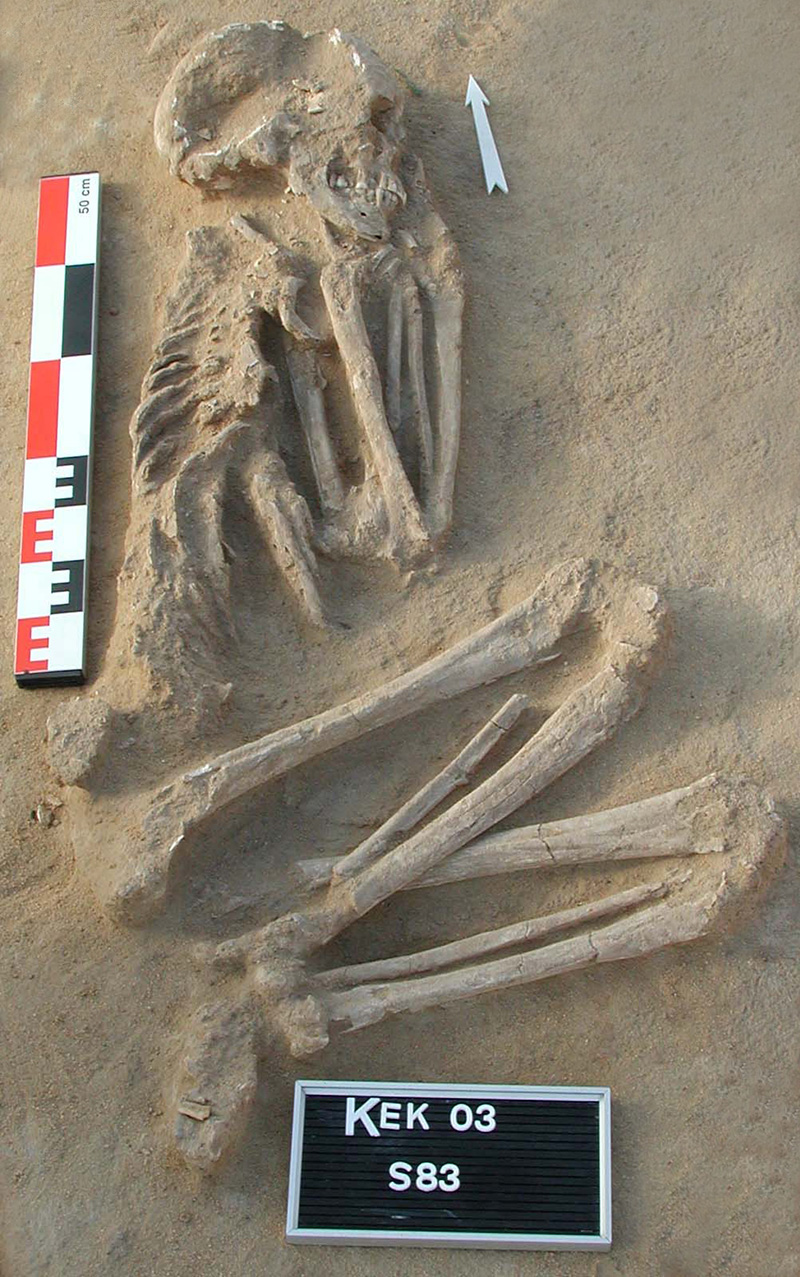
S83 – Individual buried without any materiall
(Photo B. Midant-Reynes)
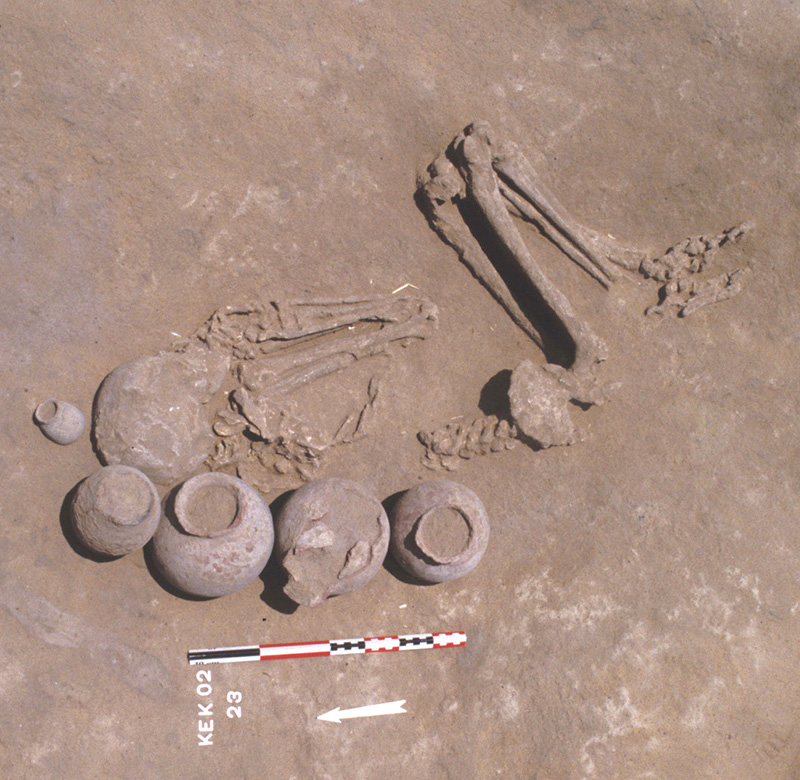
S23 – Tomb CBE. Individual buried with several vessels along the back.
(Photo B. Midant-Reynes)
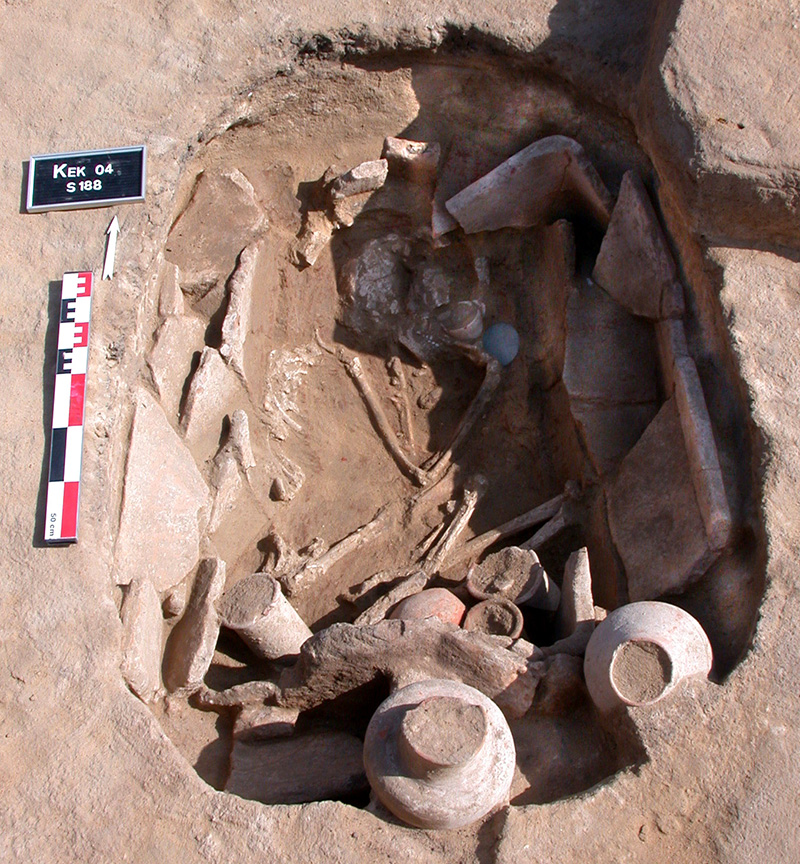
S188- Tomb Naqda IIIC (KeK3c)
(Photo B. Midant-Reynes)
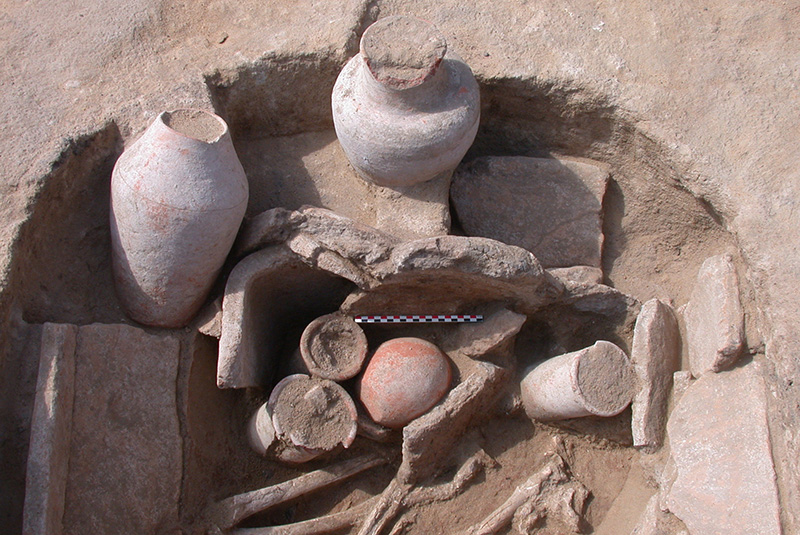
S188- Detail of vessels deposited at the feet of the deceased
(Photo B. Midant-Reynes)
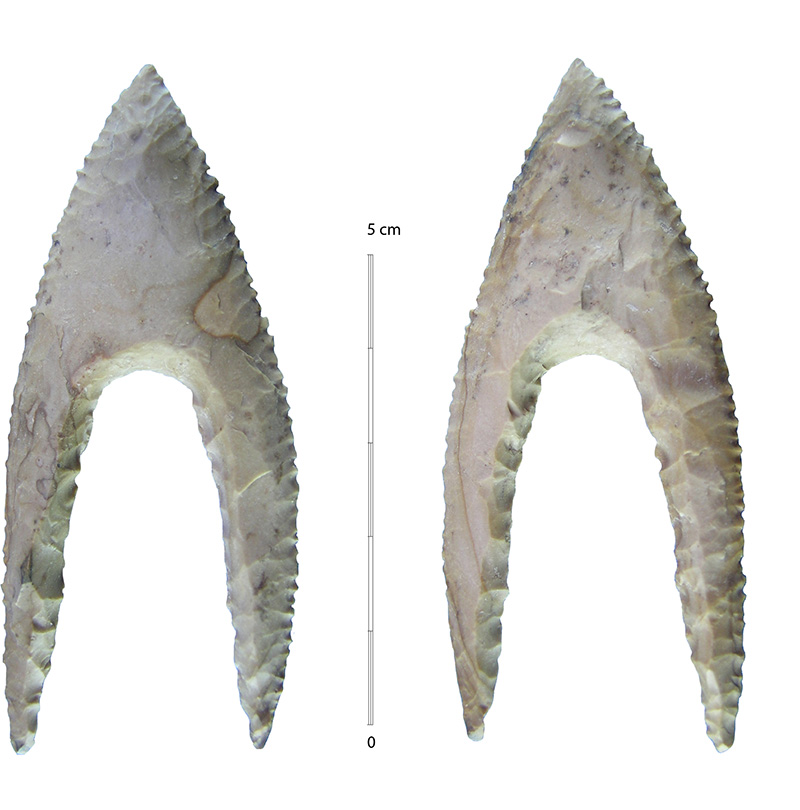
S270 – Arrowhead associated with the deceased of tomb S270 (CLE)
(Photo B. Midant-Reynes)













